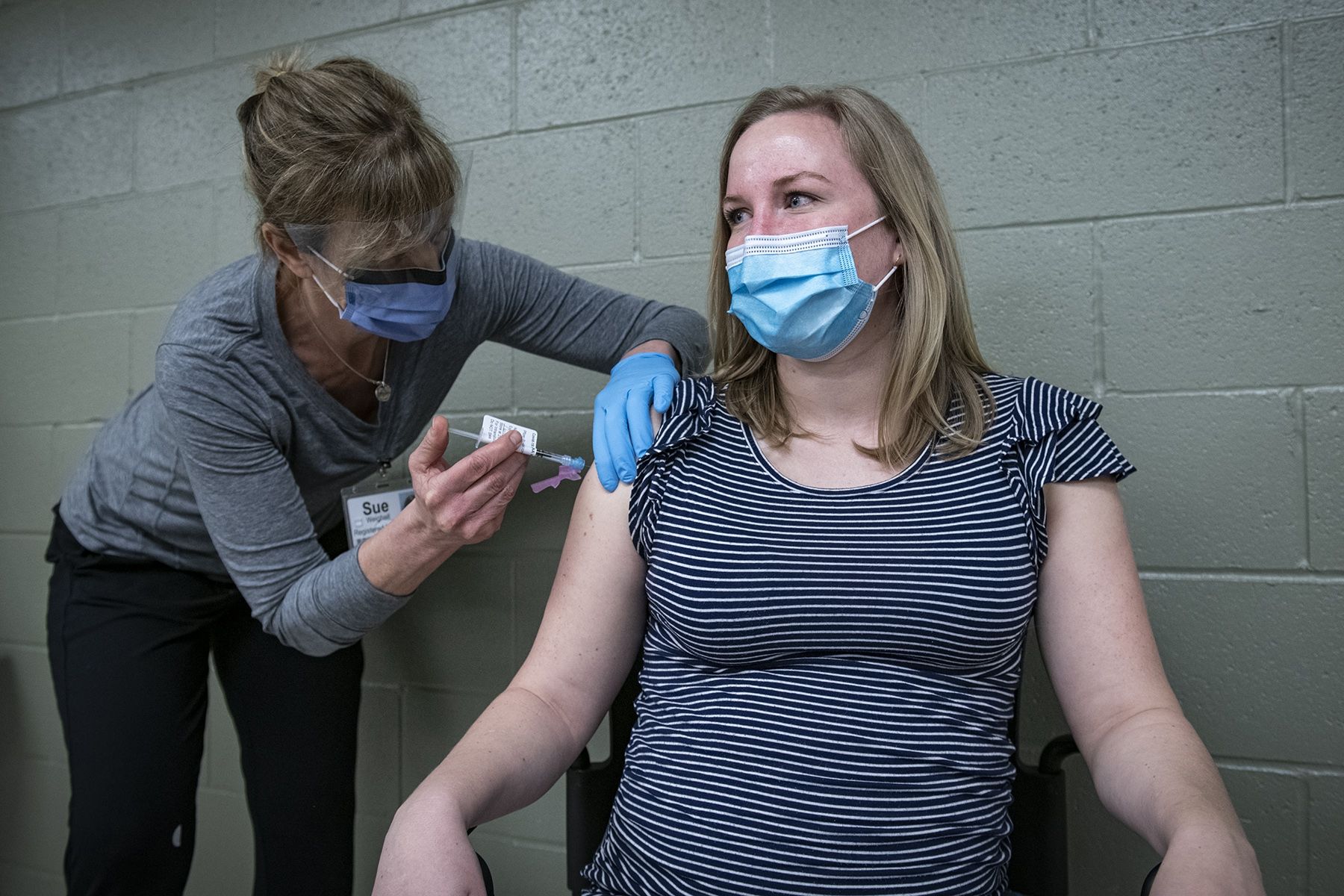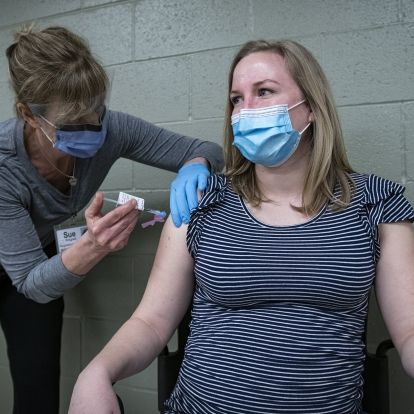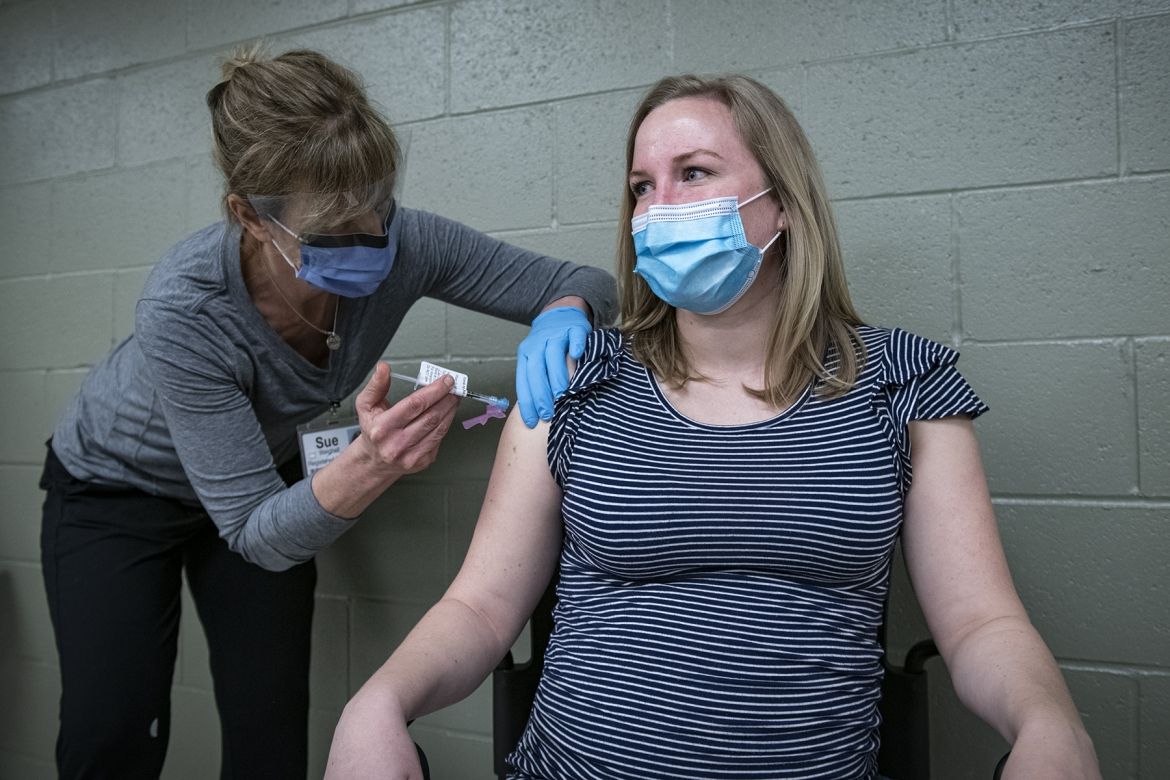
It’s natural for anyone who is pregnant or breastfeeding to second-guess a new medication or immunization, but Dr. Graeme Smith, Medical Director of Obstetrics and Gynecology at Kingston Health Sciences Centre (KHSC), assures expectant parents that there’s no reason to hesitate when it comes to any of the approved COVID-19 vaccines.
“I would advise any of my healthy patients to get the vaccine as soon as it is offered to them,” says Dr. Smith. “The risk of serious infection, hospitalization, or premature birth associated with contracting COVID-19 far outweighs any of the potential risk associated with the vaccine.”
Data collected over the course of the pandemic indicates that between eight and 11 per cent of pregnant women who become infected with COVID-19 will require hospitalization, and between two and four per cent will require admission to an intensive care unit (ICU). Data from Canada and the United States also shows an increased risk of premature birth related to COVID-19 infections acquired in pregnancy.
“Pregnant women aren’t more at risk of contracting COVID-19,” explains Dr. Smith, “but they are at risk of having much more serious of an infection than someone who isn’t pregnant if they do become infected.”
It is common practice for pregnant and breastfeeding women to be excluded from clinical trials, which is why there is still very little research available about any possible adverse reactions to the COVID-19 vaccines on this population. However, in Canada, it is considered best practice for pregnant women to receive other vaccines to protect against infectious diseases. The same remains true for available COVID-19 vaccines.
“We vaccinate pregnant women for illnesses like influenza, Hepatitis B, for travel purposes and more,” says Dr. Smith. “We also know a lot about the structure of the COVID-19 vaccine, which is an mRNA vaccine and doesn’t contain any live virus, making the risk of vaccination extremely low.”
It’s important that someone who is pregnant or breastfeeding have a discussion with a health care provider who is familiar with their pregnancy about the risks and benefits of the COVID-19 vaccine. This includes community prevalence of COVID-19, workplace risk of exposure, individual risk for severe illness, pre-existing conditions, gestational age, and more.
“In many cases, the risk of contracting COVID-19 may still be low. But we are seeing cases rise again, and the variants becoming more common. If you are someone who has to work out in the community, that alone may be enough reasoning to point you in the direction of getting the vaccine.”
If still not sure, the very least a pregnant or breastfeeding person can do is continue to be extremely vigilant about adhering to public health measures.
“Just like everyone else, they need to continue to be attentive to physical distancing, washing their hands, and wearing a mask,” says Dr. Smith. “Now that we are seeing the effects of the third wave, it’s more important than ever to be as safe as possible.”
Those who are pregnant are included in Phase 2 of the provincial government's vaccine rollout plan which is currently underway. Pregnant women should stay informed about the availability of the vaccine in their region, and book their appointments at a community location once they are eligible.
Click here for more information and additional resources about COVID-19 and pregnancy.
Gallery


Those who are pregnant or breastfeeding should have a discussion with their health care provider about their individual risks and benefits of getting the COVID-19 vaccine.



